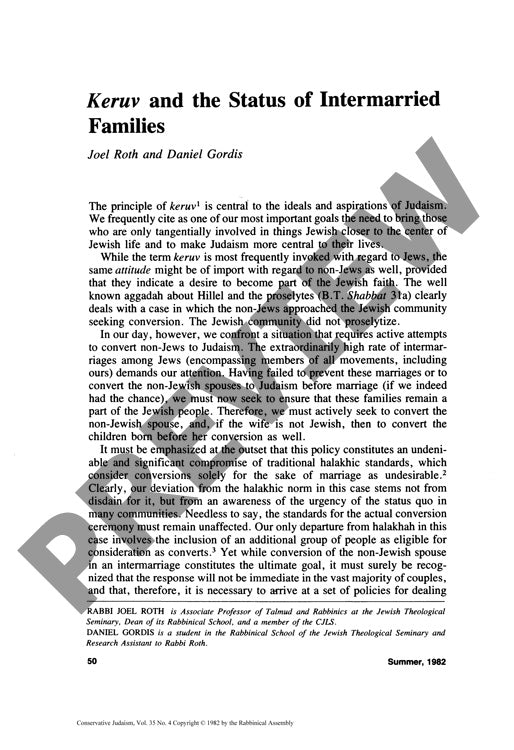Keruv and the Status of Intermarried Fam
Couldn't load pickup availability
Rising intermarriage rates pose an unprecedented challenge for Conservative Judaism's commitment to both tradition and inclusion. Through analysis of halakhic sources and contemporary rabbinic responsa, a balanced framework emerges for engaging intermarried families while preserving religious integrity. Jewish spouses should participate fully in synagogue life except in leadership roles, while non-Jewish partners may attend services without assuming ritual responsibilities or formal membership. Children of non-Jewish mothers fall into four distinct categories, with Hebrew school access limited to converted children or those whose parents commit to conversion. Rather than creating intermediate status categories, this approach maintains clear Jewish identity boundaries while implementing measured inclusion strategies. The principle of keruv (drawing near) operates most effectively through simultaneous application of yemin mekarevet (right hand drawing near) and semol dohah (left hand pushing away), ensuring outreach efforts maintain halakhic standards rather than compromising Jewish law to accommodate initial religious indifference. This dual approach creates viable pathways toward full community integration through conversion while upholding traditional Jewish legal frameworks.

More Information
-
Physical Description
-
Publication Information
Published 1982
ISBN
-
Publication Credits
Joel Roth

